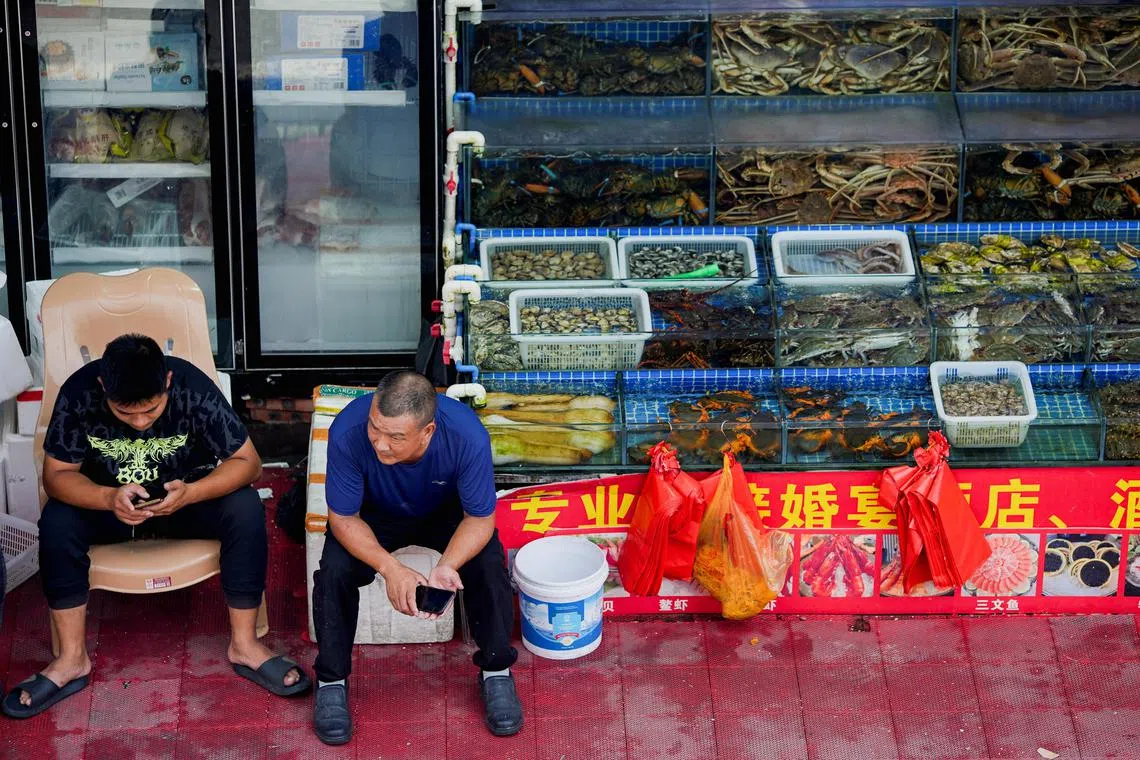More than 700 Japanese exporters hit by China’s seafood ban after Fukushima wastewater release
Sign up now: Get insights on Asia's fast-moving developments

A seafood market in Shanghai on Aug 25. Japan exported about US$600 million worth of aquatic products to China in 2022.
PHOTO: REUTERS
Follow topic:
TOKYO - More than 700 Japanese food exporters are affected by China’s suspension of seafood imports from Japan
Japan started the discharge of more than 1 million cubic tonnes of treated water
According to the Tokyo-based Teikoku Databank, 727 Japanese companies export food products to China, accounting for about 8 per cent of all Japanese firms shipping goods to China.
The report also said 316 Japanese firms export foods to Hong Kong, which announced its own ban on Japanese seafood imports
China Customs did not give details on the specific aquatic products affected by the ban.
In 2022, Japan exported about US$600 million (S$814 million) worth of aquatic products to China, the biggest market for Japanese exports, with Hong Kong second. Sales to China and Hong Kong accounted for 42 per cent of all Japanese aquatic exports in 2022, according to government data.
South Korea said on Friday it would drastically expand radiation testing of farmed seafood as demand grew from fishermen and the public to ensure safety.
More than 4,000 additional tests will be conducted at private institutions by the end of 2023 on farmed seafood products before they are shipped, Vice-Minister of Oceans Park Sung-hoon said at a regular news briefing on the Fukushima wastewater issue.
Experts will extract samples from fish farms to be inspected in a lab. No radiation has been detected since the tests began in late July, the minister said.
Japan says the water release is safe, noting that the International Atomic Energy Agency has also concluded that the impact it would have on people and the environment was “negligible”.

